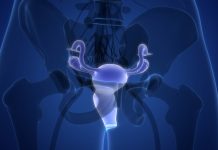As the NHS grapples with ongoing diagnostic delays, our 28-day prostate pathway is delivering faster results for our partners
The NHS in England is still facing severe pressures across its services. As of December, more than 1.5 million patients were waiting for a diagnostic test, with more than 359,000 having waited more than six weeks. Providers are committed to diagnosing patients as quickly as possible to reduce uncertainty and improve outcomes. But they’re working with high demand, tight budgets, low staffing, and often inadequate equipment.
At SAH Diagnostics, we provide streamlined, end-to-end pathways to help trusts reduce their diagnostic delays and get patients into treatment as soon as possible. Our services range from fully-staffed mobile diagnostic units to multidisciplinary insourcing teams that integrate seamlessly with existing services. We’ve made a substantial difference in waiting lists at over 20 hospital trusts, including University Hospitals of Leicester, which had one of the most challenging waiting lists in the country. Last year, we helped clear the trust’s 300-case prostate biopsy backlog and its over 500-case surgical skin cancer backlog.

28-day prostate cancer pathway
Since then, we’ve partnered with SEL Cancer Alliance to speed up its prostate cancer diagnosis by implementing our highly efficient 28-day prostate cancer pathway. Hinging on a structured timeline with defined deadlines for each step of the patient journey, the pathway ensures each assessment and procedure takes place without delay.
The pathway aims to assess the patient in a telephone clinic within three days of urgent referral from their GP.
By day 14, all necessary investigations, including prostate biopsies, should have been performed. Specialist multidisciplinary teams should review results by day 21, with patients receiving a final diagnosis by day 28.
The pathway has been a great help at Beckenham Beacon and King’s College Hospital. During the first five weeks of implementation, patients under our care spent an average of 18 days on the pathway – far below the 28-day goal. During this period, we assessed 105 patients by telephone clinic and performed 73 MRIs. Patients needing a biopsy received the procedure an average of 23.22 days from referral, ensuring they could start their journey to treatment quickly, if necessary.
SEL Cancer Alliance
We currently run three to four clinics a week in partnership with SEL Cancer Alliance, seeing eight patients each. We offer one weekly biopsy list and perform up to ten biopsies daily. We also use this list to help train registrars and nurses in the LATP biopsy technique in an outpatient setting. As part of our end-to-end service, we can provide support for every part of the pathway, with flexible scheduling and fast turnaround times to work according to the trust’s needs. We offer up to ten clinics (including TAC, MRI review, and results clinics) a week and provide fully staffed MRI units that can return reports in 72 hours.
SEL Cancer Alliance patients responded well to the pathway, with just six patients missing an appointment over the first five weeks. Almost all patients were successfully assessed via telephone, with just two needing an in-person consultation.
Rapid diagnosis can speed up access to treatment and lead to better outcomes. But it also gives patients answers faster. The uncertainty of waiting for a cancer diagnosis can be very difficult, and delays only prolong this stress.
SAH’s multidisciplinary teams can provide tailored services across a wide range of diagnostic specialities, including gynaecology, cardiology, endoscopy, histopathology, oncology, plastic surgery, and radiology. In dermatology, we provide minor operations (levels one to six) and urgent two-week wait clinics for both adults and children.
Gynaecology faces acute challenges because of a national shortage of specialists. To support affected trusts, we have developed an end-to-end pathway for patients experiencing postmenopausal bleeding (PMB), which can indicate endometrial cancer. We aim to provide the same benefits as for our prostate patients: rapid diagnostic care that reduces uncertainty and helps patients access treatment quickly.
A structured consultation pathway is crucial for an efficient, patient-centred diagnosis. PMB patients usually require transvaginal ultrasound to measure endometrial thickness and determine the risk of cancer. They may also need endometrial biopsy and hysteroscopy, alongside surgical procedures like polypectomy. Ongoing surveillance can be required whether a patient has cancer or not. We support providers at every step, from initial presentation and investigations to specialist referral, diagnosis and follow-up.
At SAH Diagnostics, our results speak for themselves. Our work in Leicester, for example, helped reverse the trust’s diagnostic performance from the most deteriorating to the most improved and won a Gold Award at the HSJ Partnership Awards. We’re proud to support NHS organisations across the country in addressing their backlogs and getting their patients into treatment faster.

This work is licensed under Creative Commons Attribution-NonCommercial-NoDerivatives 4.0 International.











